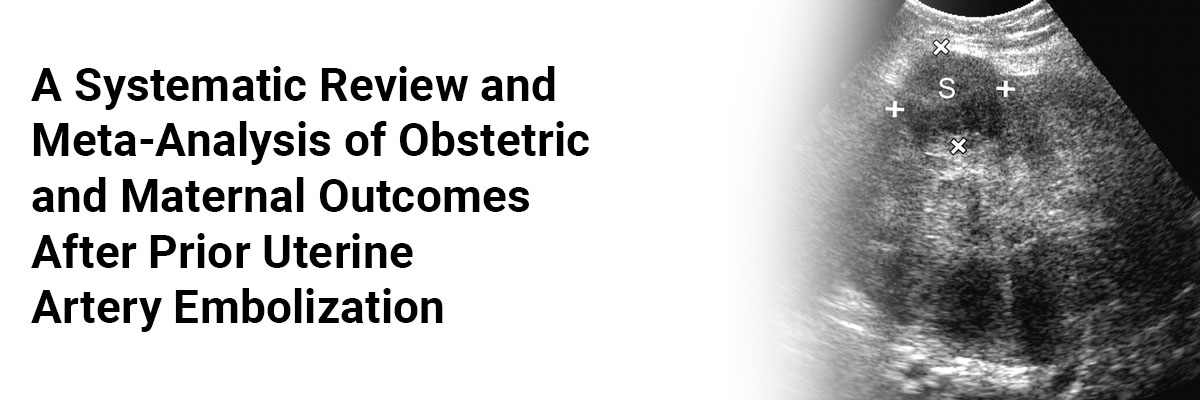
 IJCP Editorial Team
IJCP Editorial Team
A systematic review and meta-analysis of obstetric and maternal outcomes after prior uterine artery embolization
Postpartum hemorrhage (PPH) is reported in about 5% of deliveries. Its First-line treatment involves pharmacological measures, intrauterine tamponade, uterine artery ligation, and uterine compression sutures. Uterine artery embolization (UAE) is however performed in women with treatment-refractory severe PPH. If these procedures fail to achieve homeostasis, then a hysterectomy is performed.
UAE is a reasonable alternative to hysterectomy for managing severe PPH as it is an effective and minimally invasive procedure with feasible side effects and a uniform success rate of >90% for attaining hemostasis.
A recent study inspects the obstetric complications during subsequent pregnancies after UAE for PPH by investigating the relationship between prior UAE and obstetric complications through a meta-analysis.
This study specifies the effect of prior UAE for PPH on the rate of placenta accreta spectrum (PAS), PPH, placenta previa, hysterectomy, fetal growth restriction (FGR), and preterm birth (PTB). It includes 23 retrospective studies with 483 pregnancies with prior UAE and 320,703 pregnancies without prior UAE.
The observations from the study are as follows-
- The cumulative outcomes of all women with prior UAE showed the rates of obstetric complications PAS, hysterectomy, and PPH as 16.3%, 6.5%, and 24.0%, respectively.
- According to the patient background-matched analysis established on the presence of prior PPH, women with prior UAE showed higher rates of PAS and PPH but hysterectomy, placenta previa, FGR, or PTB, contrasting those who did not undergo prior UAE.
This study highlights prior UAE for PPH as a significant risk factor for PAS and PPH during subsequent pregnancies. Thus, during delivery, clinicians should be more cautious about PAS and PPH in women with a history of prior UAE.
The limited sample size warrants further investigations to confirm the results of this study.
Source: Sci Rep. 2021 Aug 19;11(1):16914. doi: 10.1038/s41598-021-96273-z. PMID: 34413380; PMCID: PMC8377070.

IJCP Editorial Team
Comprising seasoned professionals and experts from the medical field, the IJCP editorial team is dedicated to delivering timely and accurate content and thriving to provide attention-grabbing information for the readers. What sets them apart are their diverse expertise, spanning academia, research, and clinical practice, and their dedication to upholding the highest standards of quality and integrity. With a wealth of experience and a commitment to excellence, the IJCP editorial team strives to provide valuable perspectives, the latest trends, and in-depth analyses across various medical domains, all in a way that keeps you interested and engaged.





















Please login to comment on this article